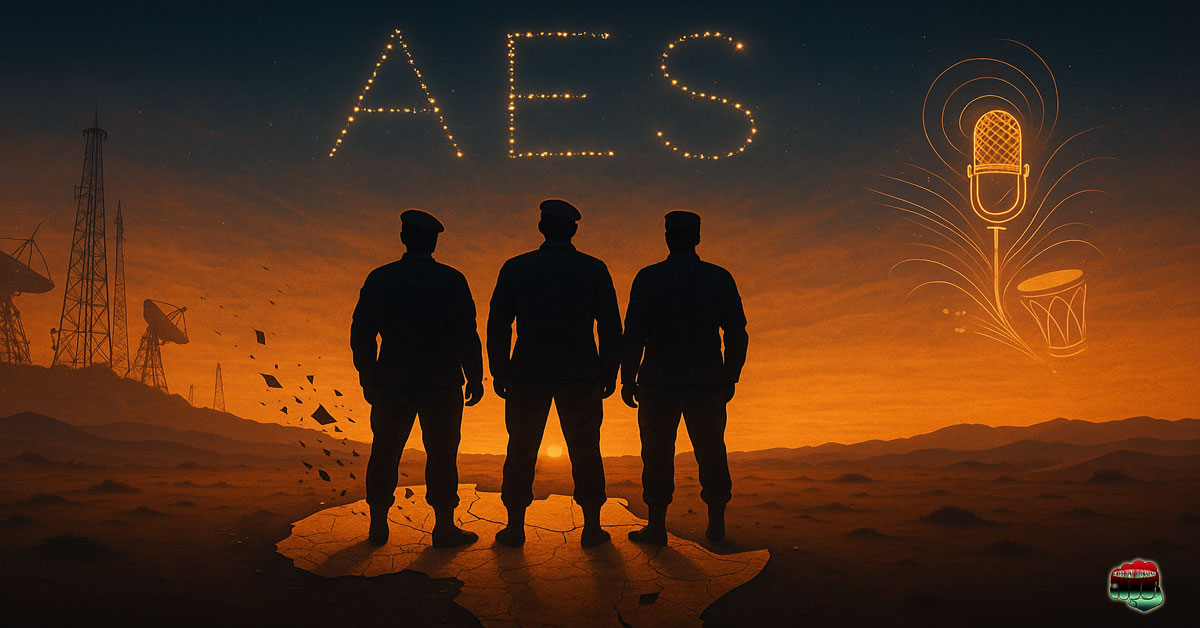InnerKwest Ghana Bureau | Published August 24, 2025
From Ouagadougou to Niamey, the leaders of the Sahel Alliance are not asking Africa to adopt new enemies—only to claim its right to choose its own friends. As French media power deepens its hold on African broadcasting, Ibrahim Traoré, Mali, and Niger remind the continent that sovereignty is not a gift; it is a practice.
I. “Your Enemies Are Not My Enemies”
When Nelson Mandela walked free, he told the world: “Your enemies are not my enemies.” That line resonates in today’s Sahel, where Captain Ibrahim Traoré of Burkina Faso has emerged as a young but forceful voice insisting that Africa’s partnerships must be chosen on African terms—not inherited from colonial scripts.
Traoré’s government asked French troops to leave, halted RFI and France 24 broadcasts, and tightened control over who tells Burkina Faso’s story. These moves are controversial in the West, but they reflect a deeper logic: only a sovereign people can decide how their battles are fought and narrated.
II. From Coup States to a Confederation
What outsiders still call “coup governments” are no longer temporary placeholders. Burkina Faso, Mali, and Niger have bound themselves into the Alliance of Sahel States (AES)—first through a defense pact, and now as a full confederation.
Their message is simple: regional security will be managed regionally. French, American, and even UN deployments have exited the Sahel. In their place is an African-led 5,000-strong joint force, backed by new ties with Russia and the promise of an AES development bank.
This is not just military restructuring—it is a political declaration of adulthood. The Sahel no longer seeks guardianship; it seeks partnership.
III. Three Capitals, One Pulse
- Ouagadougou (Burkina Faso): Traoré has mobilized volunteers and auxiliaries while rejecting France’s old role. He has silenced foreign broadcasters but insists it is to shield citizens from weaponized narratives.
- Bamako (Mali): Assimi Goïta has leaned on Russian support and ended decades of UN presence. To him, sovereignty means reclaiming Kidal and refusing imposed elections on foreign timetables.
- Niamey (Niger): Abdourahamane Tchiani ended French and American basing rights, then accepted Russian instructors. He has stretched a five-year transition, but frames it as time needed to secure Niger’s house before unlocking the front door again.
Together, they have redefined what “non-alignment” looks like: not neutrality, but agency.
IV. The Other Front: Controlling the Story
At the same moment African states are ejecting foreign troops, a French billionaire media empire is moving in. Canal+, historically linked to Vincent Bolloré’s sphere, has secured approval to acquire MultiChoice, Africa’s biggest pay-TV company.
This raises a profound question: Who decides what Africa sees on its screens?
If sovereignty means anything, it must extend to the narrative space. A continent that lost centuries to colonialism cannot afford to rent its imagination to outside shareholders—whether the content comes in the form of news bulletins, streaming packages, or curated “avatars” that blur fact and fabrication.
V. Propaganda and the Age of Believable Avatars
Today, disinformation is not just about fake headlines; it is about believable digital personas, AI-generated videos, and networks of proxy influencers. In this new terrain, the line between propaganda and news is thin.
The Sahelian juntas argue that shutting down foreign broadcasters is self-defense. Critics say it is censorship. Both can be true. What matters is whether Africa can build its own trusted platforms so that sovereignty in the digital age does not mean silence, but speech on African terms.
VI. The InnerKwest Perspective
At InnerKwest, we are pro-sovereignty without condition. That does not mean endorsing every decree of a junta or excusing every excess. It means recognizing that Africa’s sovereignty—hard-won and long-denied—cannot be subcontracted to Paris, Washington, Moscow, or Beijing.
- If Burkina Faso chooses Russian instructors, that is sovereignty.
- If Niger ejects US bases, that is sovereignty.
- If Mali rejects an election calendar imposed from abroad, that is sovereignty.
Sovereignty is not perfect. It can be clumsy, it can be abused, it can be painful. But it is ours. And, like Mandela warned, the enemies of others need not be ours.
VII. What Africa Must Guard Against
- Media Colonization 2.0 – If the Canal+–MultiChoice deal consolidates one gatekeeper for millions of African screens, sovereignty risks being undermined by subtler tools than armies: algorithms and editorial bias.
- Binary Thinking – The Sahel is not a pawn on a Western-vs-Russian chessboard. Its leaders must be allowed to pivot, experiment, and fail forward.
- Silencing Instead of Building – Blocking foreign propaganda is a short-term defense; constructing African-owned, credible media is the long-term solution.
VIII. Toward a Continental Sovereignty
The Alliance of Sahel States is an experiment, but it forces a continental conversation. If three nations facing some of the world’s worst security crises can attempt self-determination, why can’t Africa’s stronger economies?
This is the pivot point: will the rest of Africa defend the Sahel’s right to chart its course, or will it let external actors define the continent’s image again?
Final Note
Sovereignty is not neat. It is not comfortable for outsiders. But it is the only foundation on which Africa can build its own peace. The Sahel is telling us, in word and deed: Your enemies are not my enemies. Ours are enough. And we will face them as sovereign nations.
Support InnerKwest: Powering Truth & Excellence with Bitcoin
At InnerKwest.com, we are committed to delivering impactful journalism, deep insights, and fearless social commentary. Your Bitcoin contributions help us execute with excellence, ensuring we remain independent and continue to amplify voices that matter.
Support our mission—send BTC today!
🔗 Bitcoin Address: 3NM7AAdxxaJ7jUhZ2nyfgcheWkrquvCzRm© 2026 InnerKwest®. All Rights Reserved | Haki zote zimehifadhiwa | 版权所有.
InnerKwest® is a registered trademark of Inputit™ Platforms Inc. Global
No part of this publication may be reproduced, distributed, or transmitted in any form or by any means without prior written permission. Unauthorized use is strictly prohibited.
Thank you for standing with us in pursuit of truth and progress!![]()


